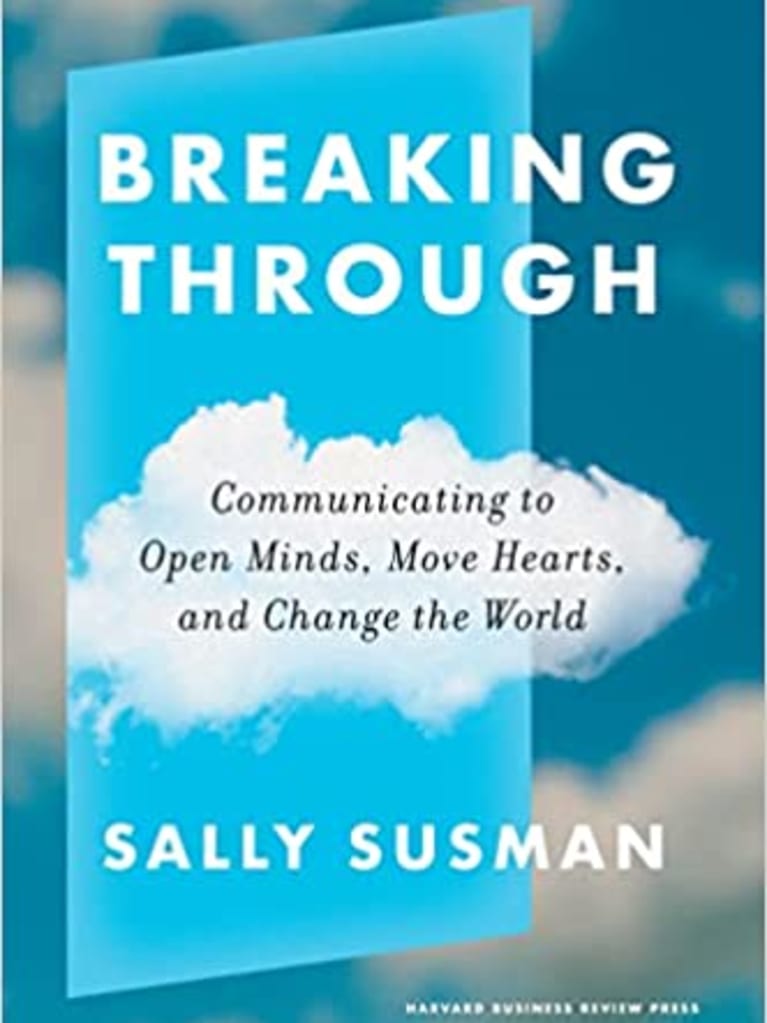When Crisis Comes Calling: A Checklist for Leaders
In this excerpt from her new book, Sally Susman, Pfizer's renowned head of corporate affairs, explains how leaders can prepare for any crisis by following these eight core steps.

When a crisis hits, and it's a safe bet that it will, a wrong response can trash in a moment the strong public image built and cultivated over years, hence, the phrase that "reputation is earned in drops and lost in buckets." These reputation spills seem guaranteed to keep flowing.
 others slowly boil over years. All involve a grave loss of some sort—of dignity, or security or one of many other precious qualities, most importantly, trust.
others slowly boil over years. All involve a grave loss of some sort—of dignity, or security or one of many other precious qualities, most importantly, trust.
While you can never know what precise circumstances you might face in any given crisis, you can prepare by understanding certain basics.
1. Gather facts quickly and methodically
Knowing how to ask the most relevant questions is crucial in a communications crisis. At my first public relations job at American Express in 1990, I watched my boss, Senior Vice President for Communications Mike O'Neill, respond to a variety of breakdowns ranging from a feared data breach of card member accounts to merchant revolts due to Amex's high fees, by calmly sitting at his desk and ticking through his list of questions.
Naive and new to the field, I remember thinking, what's wrong with this guy? Why is he just sitting there asking all these questions? He should start telling us what to do.
Mike's method of meticulous questioning is essential to crisis communications management. Often a communicator's role in crisis is to be the central point of contact and source of knowledge inside and outside the company.
Now, my first question is always, "Has anyone been hurt?" Assessing the damage, especially impact on people, is fundamental. From there, I seek to understand the crisis at its source:
- What caused it?
- What can be done to fix it?
- How long will that take?
- How much more damage will occur in the meantime?
- What can my company do to help?
A strong communications leader will interrogate the problem and probe for what the public needs to know. Having a crisp understanding of the situation with a transparent timetable for updating the public is essential.
2. Open a command center
Proximity helps when dealing with a fast-moving disaster. During these pressure-cooker events, time is your enemy. So, there's real benefit in having all the experts in one room so that questions can be answered, and conflicts resolved, immediately. If the crisis is in a specific place (perhaps the result of a weather event), establish a team on the ground in the region. In the command center—or situation room, as it's sometimes called—be clear about roles and responsibilities. Yes, you will want to include a range of functions from digital to legal, from commercial to finance. But it's critical to know who is accountable for what and where decision rights rest.
Pull together in one place the technology, supplies, and support you will need over the hours and days to come. This may include everything from sophisticated social listening tools to plenty of water. Staying informed is essential, but hydration matters, too. Most importantly, the command center sends a signal that there is a place where the lights never go out, where the dangers of the crisis are addressed 24/7.
3. Create a stakeholder map
Each crisis has its own set of critical players, and no two crises are the same. On April 6, 1996, an Air Force CT-43 plane carrying my then-boss Secretary of Commerce Ron Brown along with 34 others, including Commerce Department colleagues and business leaders, crashed into a mountainside in Dubrovnik, Croatia. The tragedy was shocking and heartbreaking. The grim task for those leading the recovery effort included notification of family members about the loss of their loved ones. There is no more delicate task.
Force CT-43 plane carrying my then-boss Secretary of Commerce Ron Brown along with 34 others, including Commerce Department colleagues and business leaders, crashed into a mountainside in Dubrovnik, Croatia. The tragedy was shocking and heartbreaking. The grim task for those leading the recovery effort included notification of family members about the loss of their loved ones. There is no more delicate task.
Typically, the stakeholder plan will include outreach to relevant regulatory authorities, perhaps other government officials. Most likely you'll have senior management, employees, and the board of directors on this list. Cast a wide net when compiling the names of those to inform. It's better to err on the side of being more inclusive with info rather than less.
4. Focus on the victims
Never let your focus waver from those who are impacted by the crisis. Remember that your needs will have to wait. During the BP oil spill in the Gulf of Mexico, CEO Tony Hayward missed the mark. Initially he downplayed the spill, stating on May 17, 2010 that the environmental impact of the Gulf spill would be "very, very modest," and calling the spill "relatively tiny" in comparison with the vast ocean.
In short order, Hayward had to reverse those remarks on CNN, declaring his company's actions an "environmental catastrophe." He added to the communications damage done by later getting caught on video saying that "I would like to get my life back," while attending a yacht race off the Isle of Wight. Hayward later had to issue another apology for his insensitive comment, saying he was "deeply sorry" for his remark. Too little, too late. In June of that same year, Hayward lost his job.
5. Consider whether an apology is appropriate, and if the answer is yes, do it right
Be specific, addressing those impacted by name and reciting in no uncertain terms the offense. A weak apology is worse than none at all. Don't make it about you. Do not caveat the acknowledgment with "if I offended anyone . . ." Don't speak in vague, third-party terms. Owning one's action is essential.
A particularly bad apology was made by New York governor Andrew Cuomo in his resignation speech on August 10, 2021. After being accused of harassment by at least 11 credible women, and months of stonewalling the charges, the governor finally decided to step down. When he did, he denied any wrongdoing and again tried to diminish the women's allegations that he inappropriately touched them or made sexually suggestive remarks by characterizing them as a political attack against him or just one big misunderstanding.
Despite claiming to take "full responsibility," his apology was riddled with self-justifying excuses. Cuomo said, "In my mind, I have never crossed the line with anyone, but I didn't realize the extent to which the line has been redrawn." Those words did not cut it. This anemic apology demeaned the victims and failed to meet the standard of true remorse.
6. Visuals matter
The BP disaster was a story told in images. First, CNN ran a video feed continuously that showed oil dumping into the ocean. It was a persistent reminder of the spill's gravity. Like many watching in horror as the slick spread, I couldn't avert my eyes. That gruesome visual was juxtaposed with Hayward yachting off the Isle of Wight just two days after facing a hostile congressional panel in an appearance that was widely panned as insensitive.
President Barack Obama's chief of staff, Rahm Emanuel, chided Hayward's attendance at the yacht race as "part of a long line of PR gaffes and mistakes" on ABC television, saying, "I think that we can all conclude that Tony Hayward is not going to have a second career in PR consulting."
Imagine how the story may have been better with the image of executives hunkered around a conference table, sleeves rolled up. Or seeing the BP team out helping with the cleanup on the marred beaches in the coastal communities.
Finally, convey an appropriate level of propriety while dealing with crises. I keep a clean, pressed, somber dress ready to go in my offices both at work and at my home in case I'm called into action. I prefer not to find myself in front of TV cameras in the casual clothes that have become the style in corporate culture, and I certainly don't want to be scrambling for something decent to wear. Like it or not, these details matter.
7. Establish a rhythm
Determine the right cadence to update interested parties, especially the media. If possible, set a schedule whereby bulletins are issued twice daily, in the morning and at close of business. Remember, this might be a marathon rather than a sprint, and managing your own energy will be important. See that your team rotates shifts to share the burden. No one can pull consecutive all-nighters and do good work. Needing sleep is not a weakness, it's a fact. I like to live by what I call "the oxygen mask rule." There's a good reason flight attendants say in the preflight announcements that should oxygen be required, you must put your own mask on before assisting small children. You aren't much good to anyone else if you don't take care of yourself.
8. Afterward, audit your crisis response
Before moving forward, take the time to debrief as a team. What did we do well? What can we do better next time? Most communications consulting firms offer crisis simulation exercises to practice and build your skills. As Mike O'Neill of American Express said to me, "The three most important things you can do to prepare for a crisis are train, train and train." It's worth the investment of time when things are calm to exercise your crisis muscles. When disaster strikes, you'll be glad you did.
These ideas represent first principles, your North Star when you're managing a crisis, not because they are revolutionary, but because they are effective.
_______________________________
Excerpted from Sally Susman's new book, Breaking Through: Communicating to Open Minds, Move Hearts, and Change the World (Harvard Business Review Press, March 2023). Susman is the chief corporate affairs officer at Pfizer and vice chair of The Pfizer Foundation. In 2022, Forbes named Susman one of the World's Most Influential CMO's for Pfizer's efforts to combat vaccine misinformation.
Was this resource helpful?



